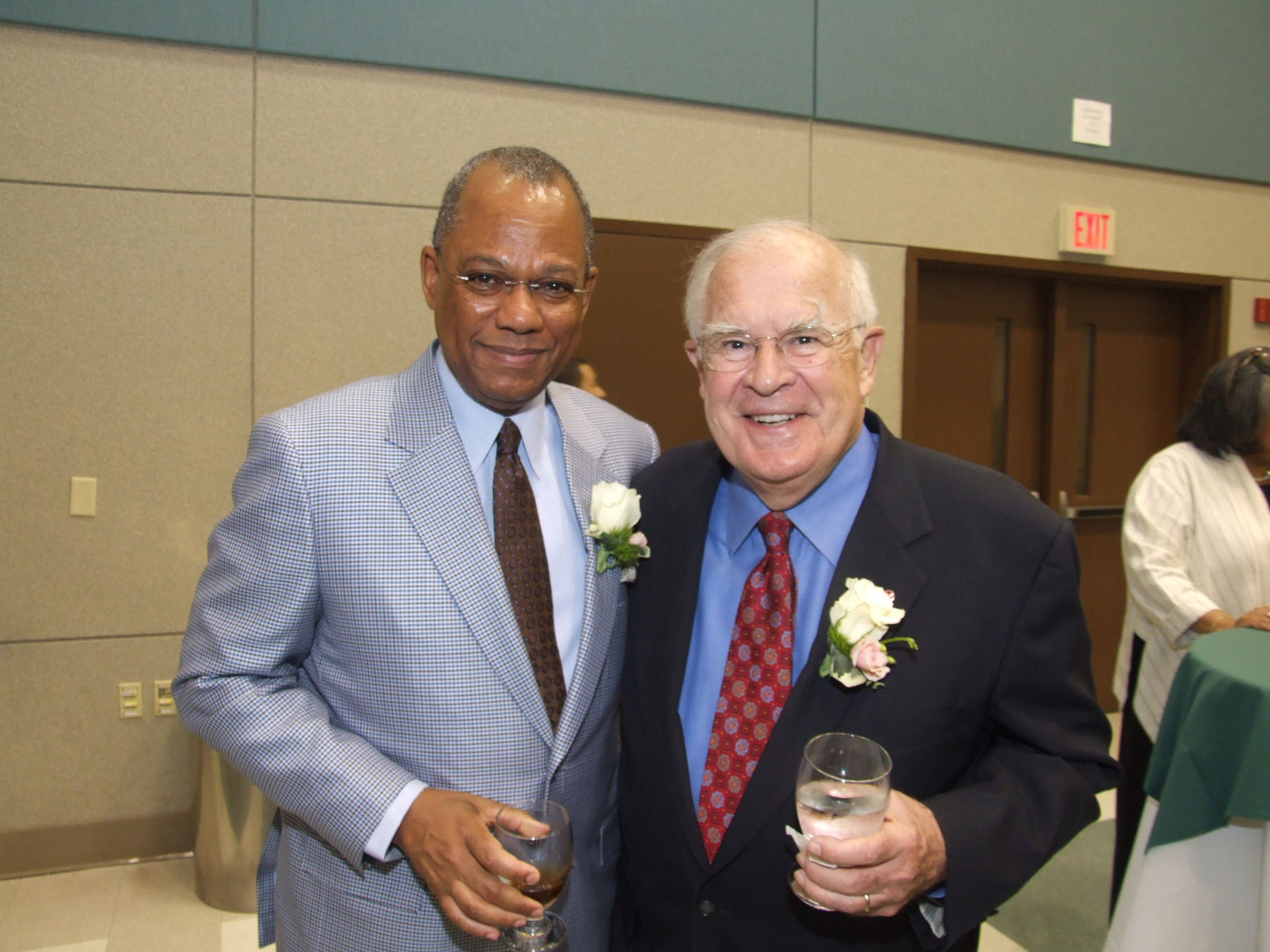The Rev. Dr. Calvin O. Butts III, SUNY Old Westbury’s president, will retire from his post at the university next January, he announced last week, and as he moves on from the job he has held for nearly 20 years he said a potential run for political office is on his mind.
“I think I have the zeal still,” he said. “I may be able to run a city like New York. Or I like the United States Senate. Maybe something will happen there.”
During his tenure, the university has seen new buildings – including a student union – pop up on campus, deepened investments in facilities and the expansion of academic departments. It has all been paired with an enrollment increase of more than 50 percent.
Total enrollment now sits around 5,000, with 300 of those students engaged in graduate programs. That is the largest graduate class since the four-year college enrolled an initial group of 19 in 2004.
Now that Butts has outlived the average university president’s tenure about three times over, it’s time to bring in some new blood to lead the university, he said.
In addition to leading SUNY Old Westbury, Butts is a pastor at Harlem’s Abyssinian Baptist Church and chairs the board of directors for the Abyssinian Development Corporation, whose mission is uplifting and rebuilding the city’s historic black neighborhood. Throughout his career, he has advocated on behalf of communities of color.
“I have had plenty of opportunity to run for office and I never did, but now who knows,” said Butts, who is 69. “Maybe something’s going to happen.”
For now, though, he said his post-retirement plans are to instruct at the university, a place that he said represents the opportunity the State University of New York system offers for students of all backgrounds to obtain a meaningful education.
When he became SUNY Old Westbury’s president in September 1999, its mission was in place but the campus was in terrible physical condition, he said.
“The school was disrespected by the state system,” Butts said. “SUNY had not invested in the school at all, and it was certainly not highly regarded. And that’s an understatement.”
The university’s Faculty Senate chairman, Andrew Mattson, who had been teaching at SUNY Old Westbury for several years before Butts’ arrival, said the faculty were unsure of what to expect from Butts, who had never been an academic administrator.
“When someone new comes in, you can be a little nervous that they will change the direction of the college,” Mattson said. “We have a real commitment to social justice and diversity and those can be just words, but for President Butts he really is an ethical person who has a commitment to social justice and diversity.”
Butts’ presence on the campus provided stability for students and their parents looking for someone to defend their education, the president said. It also awakened Albany, and even Washington, D.C., to the school’s needs, he said.
“I spent a lot of time talking to key people,” Butts said. “For instance, a dear friend and supporter was William Jefferson Clinton, the president.”
Butts has a presence about him that elicits attention and respect, both Mattson and Alumni Association President Lionel Chitty said.
“When you first see him, you get this air of prestige, but once you start talking to him he’s a real person,” Chitty said.
He dresses sharply and can move a room with his words, Mattson said. His experience as a minister allowed Butts to bring solace to the campus during difficult times, such as the 9/11 attacks, he said.
“I will readily confess that I think my being president of SUNY Old Westbury in terms of providing a sense of confidence, stability, integrity was real,” Butts said. “And I think the students as well as some of the students’ parents felt that was very important.”
Butts said he was optimistic about the future of the university.
“It’s a magical place, and I think it will become even stronger and continue to create leaders for the real world,” he said.
News of wealthy individuals using bribes to gain admission to elite colleges for their children was not news to him, he said, but was a reminder of why he values the university he presides over.
It’s a place that welcomes individuals from low-income households and students ready to earn a degree later in life, he said.
“The cost of a liberal arts education for all of us is way too high, and that’s why I’m proud to be a part of the state university system because I think that we provide access and affordability to students without regard to their wealth or their influence,” Butts said.
Without Butts at its helm, SUNY Old Westbury won’t be quite the same, Chitty said.
“It will be a new era,” he said. “I hope we get someone who’s at least as half as good as he is.”



